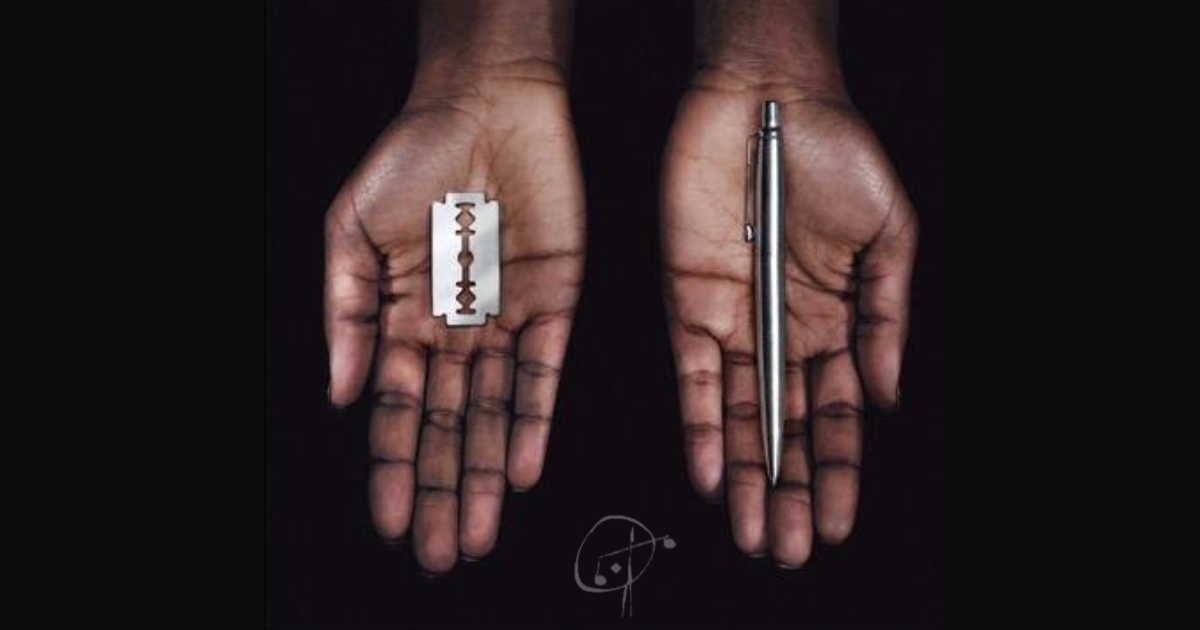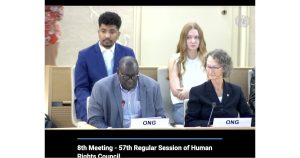The fight to eliminate the scourge of female genital mutilation is breaking new ground. The United Nations General Assembly is poised to adopt a resolution on Thursday calling on all states to enact legislation banning this egregious human rights violation.
This remarkable development has come about thanks to a coalition of non-governmental organizations that have worked closely over the past 10 years and those U.N. member states — notably Italy and Burkina Faso — that have been most dedicated to combating the practice at home and internationally.
The U.N. resolution will be adopted by consensus, demonstrating the international community’s unified stance. The consensus is strengthened by the fact that two thirds of U.N. member states are co-sponsoring the resolution, with 67 states joining the 54 nations of the African Group, which initially introduced the text.
The next step will be for all states to implement the recommendations of this breakthrough document, starting, in the words of the resolution, by taking “all necessary measures, including enacting and enforcing legislation to prohibit female genital mutilations and to protect women and girls from this form of violence, and to end impunity.”
Female genital mutilation, defined as any procedure to remove or injure external female genitalia, is practiced in many countries in Africa, and also throughout the Middle East, South Asia and South America as well as in immigrant communities in Europe, North America and Oceania. The World Health Organization estimates that there are between 100 million and 140 million girls and women worldwide who have been mutilated, and that, in Africa alone, three million girls are at risk every year.
Over the years, a specious debate has pitted advocates for community-level grassroots activists against proponents of strong legislative frameworks, creating a false rivalry between the bottom-up and top-down approaches to eradicating the practice.
The resolution can bring an end to this useless controversy by establishing that the prerequisite for addressing a human rights violation is the establishment of a clear legislative framework for deterrence and protection of potential victims, which in turn strengthens grass-roots activists, placing their work unequivocally within the rule of law and creating the context in which government and civil society can cooperate most effectively.
Another disturbing trend has been the medicalization of female genital mutilation, following campaigns that focused on its health implications rather than the fact that it is a violation of human rights regardless of the degree of hygiene with which it is perpetrated.
Far from being a first step toward the elimination of female genital mutilation, this trend has only served to legitimize it, by suggesting that the problem lies in the undesirable “side effects” rather than in the violation of the bodily integrity of girls and women. The resolution firmly refutes this, unequivocally condemning any medicalization.
Laws have been adopted in a number of countries, but the political will to implement them effectively has seldom followed. Where activists have engaged with their governments, the advances toward eliminating the practice have been the most successful. It is of the utmost importance that activists follow this model and not limit their role to that of inward-looking self-help groups. As activists, we can and should address the matters that concern us on the limited scales that are within our reach, but we must not lose sight of the wider context.
This has been the approach of the Ban FGM Campaign, and the resolution will be a great victory for all those who have struggled to bring it about. It will represent a paradigm shift of great significance, securing the political will necessary to stamp out the practice.
It is now up to all of us to support activists on the ground whose efforts were instrumental in reaching this milestone: we must all continue to challenge parliaments, governments and international bodies, and hold them accountable. We must strive to ensure that our needs top their list of priorities.
It would no doubt be more comfortable for them if we simply left them in peace, but we cannot afford to do so. Rather, we must never stop pressing them to honor their commitments, never letting them off the hook until female genital mutilation has been once and for all eliminated the world over.
As Aung San Suu Kyi once said to me: “Use your freedom to promote ours.” This is a call we should always cherish and fulfill whenever and wherever human rights are at stake.
Emma Bonino is vice president of the Italian Senate and founder of No Peace Without Justice.
- Read the op-ed on the website of the International Herald Tribune




